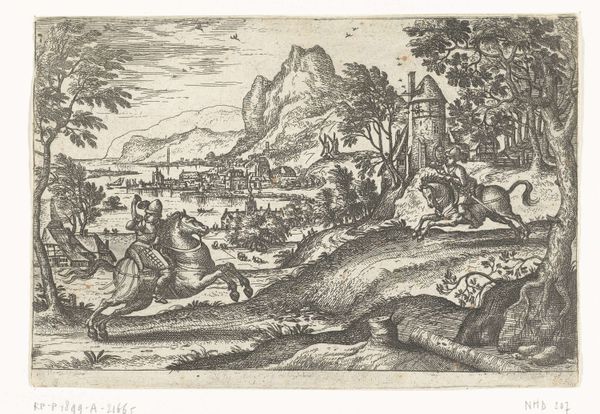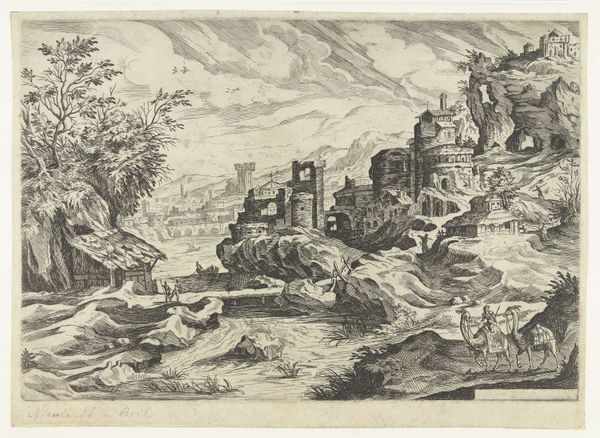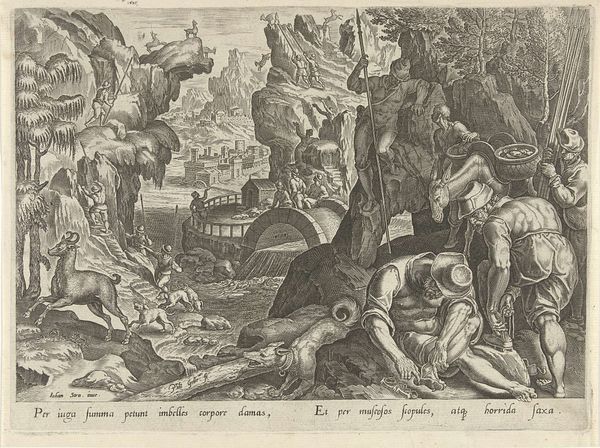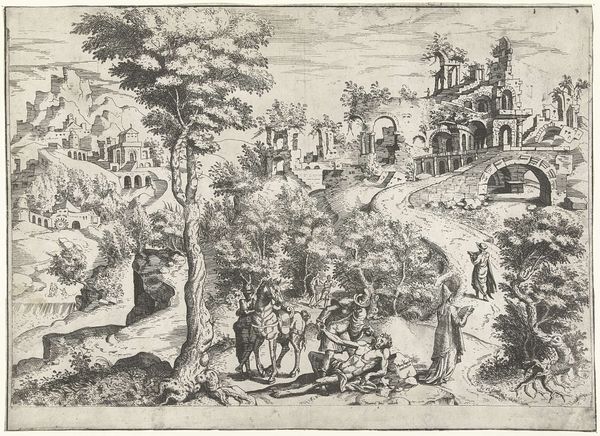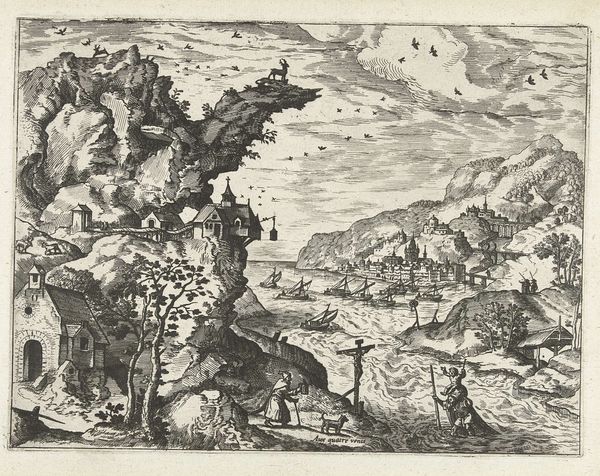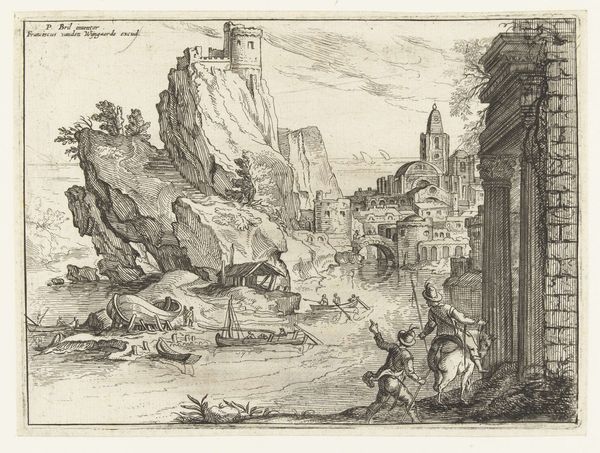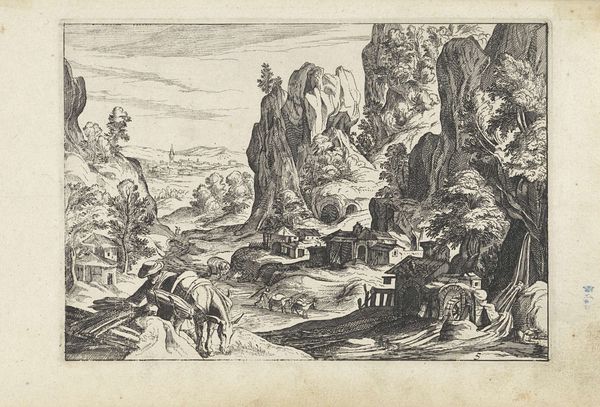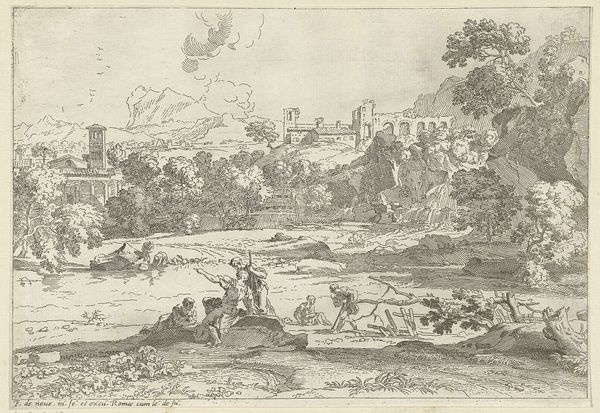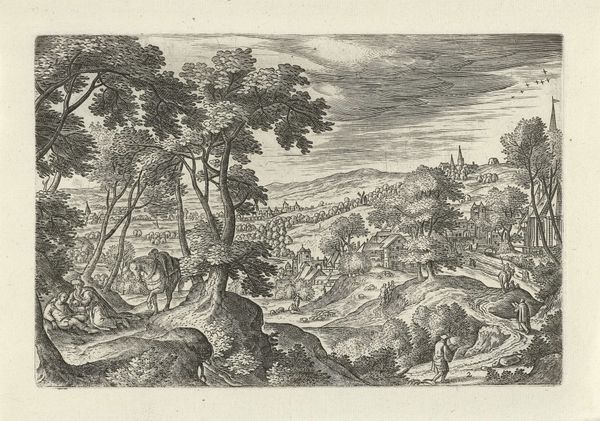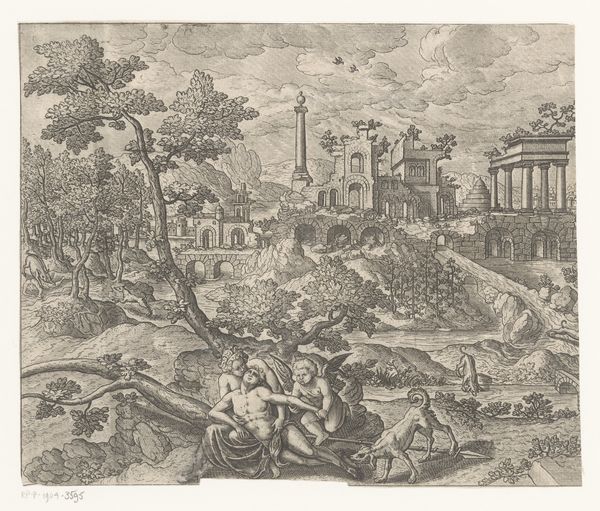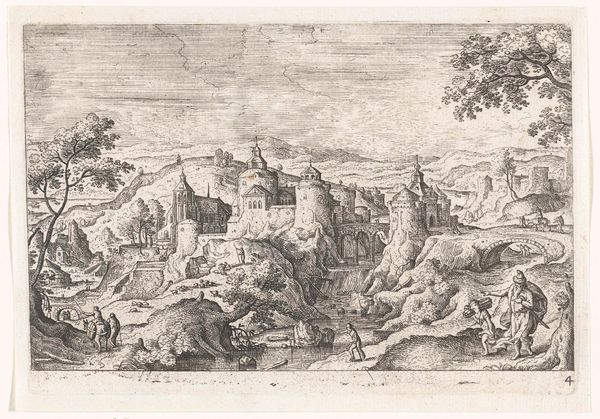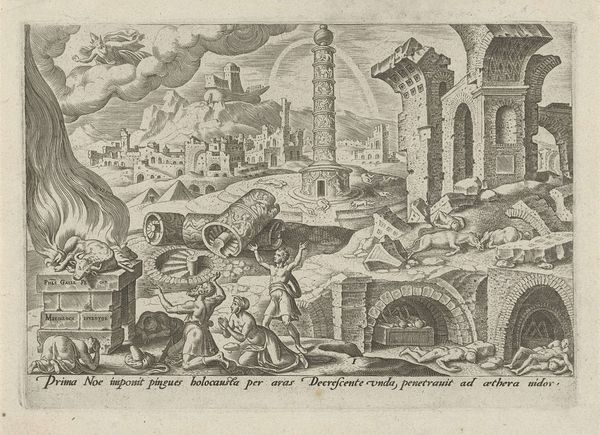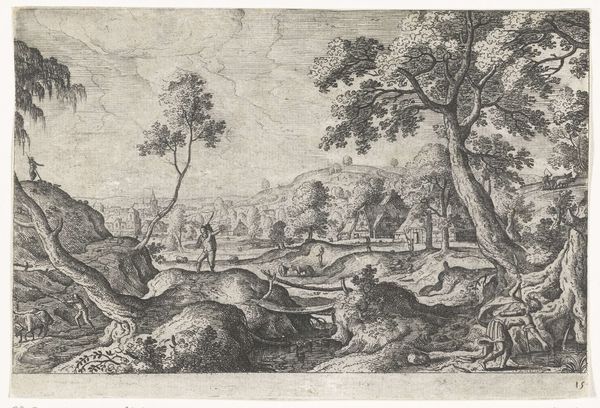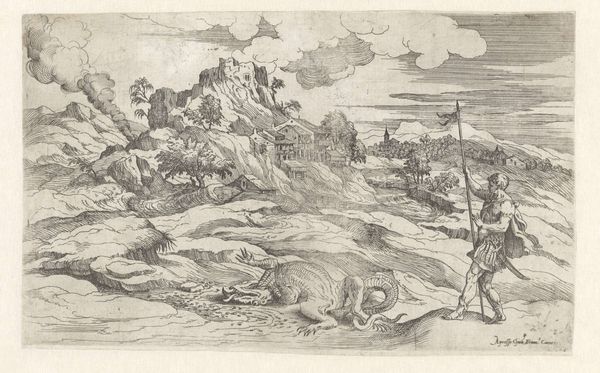
print, etching, engraving
# print
#
pen sketch
#
etching
#
landscape
#
figuration
#
11_renaissance
#
history-painting
#
engraving
Dimensions: height 172 mm, width 325 mm
Copyright: Rijks Museum: Open Domain
Philips Galle made this small print, Landscape with the Suicide of Thisbe, in the Netherlands, sometime in the late 16th century. It illustrates a story from Ovid's Metamorphoses, in which two lovers, Pyramus and Thisbe, kill themselves after a tragic misunderstanding. Notice how Galle's image isn’t just an illustration of Ovid's story. It’s a commentary on the themes it contains. The meticulously detailed cityscape of Babylon with its Roman-style architecture is reminiscent of contemporary European cities. This choice makes the story feel both ancient and relevant to Galle’s contemporaries, who were also navigating complex social structures and moral codes. The choice of a dramatic, tragic moment also speaks to the cultural values of the time, where emotional expression and moral lessons were highly valued in art. Exploring the archives of the era can reveal more about how artists used classical stories to reflect on their society. What can we learn about the enduring power of art to reflect and shape our understanding of human experience through the lens of the past?
Comments
No comments
Be the first to comment and join the conversation on the ultimate creative platform.
